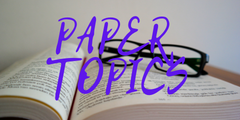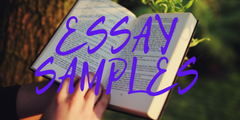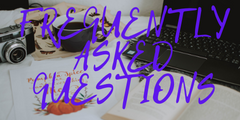Response writing is a fundamental skill that many of us use without even realizing it. From responding to emails and text messages to engaging with literature and media, we constantly interact with various forms of writing. But what exactly is response writing? In this article, we will explore and define this crucial skill, delving into its different aspects and examining its importance in our everyday lives. Whether you are a student, professional, or simply someone looking to improve their communication skills, understanding response writing can greatly benefit you. So let’s dive in and discover the art of responding to writing.
Understanding Response Writing
Response writing is a term used in the field of writing and literature. It refers to the act of critically responding to a piece of writing, whether it be a story, article, essay, poem, or any other form of literary work. This type of writing allows individuals to share their thoughts, reactions, and opinions on a specific text, critically analyzing its content and style.
Response writing is not just limited to academic settings; it can also be used in everyday life when we discuss a book or movie with others. It is a way to engage with the text and to develop a deeper understanding of it. In this article, we will explore the concept of response writing, its definition, and how it can be effectively used in different contexts.
Explaining Response Writing
As mentioned earlier, response writing involves providing personal thoughts and opinions on a text. It is an active reading process that involves evaluating the text’s content, structure, tone, and style. Unlike a summary or a review, response writing delves deeper into the text, attempting to understand the author’s intentions, themes, and overall message.
When responding to a piece of writing, one should avoid simply summarizing the text. Instead, they should focus on making connections between the text and their personal experiences, knowledge, and opinions. This not only enhances the understanding of the text but also encourages critical thinking and analysis.
In response writing, it is crucial to provide evidence or examples from the text to support one’s arguments or opinions. These examples can be direct quotations, paraphrased sentences, or even the use of specific vocabulary from the text. This helps to strengthen the response and make it more convincing.
Defining Response Writing
Response writing can be defined as a written reaction to a text that involves a critical analysis of its content, style, and structure. It is often used in academic settings to assess students’ understanding of a particular text or to encourage them to think critically about different literary works. However, response writing can also be used in personal or professional contexts, such as book clubs, literary societies, or even in written reviews or critiques.
The purpose of response writing is to provide an informed and thoughtful opinion on a piece of writing. It allows individuals to engage with the text on a deeper level, exploring its themes, symbolism, and characters. It also encourages readers to make connections between the text and their personal experiences, beliefs, and values.
Response writing can take various forms, such as a formal essay, a journal entry, or even a letter to the author. The structure and format may vary depending on the context and purpose of the response. However, all response writing should include an introductory paragraph that provides an overview of the text and the writer’s overall impression. The body paragraphs should then delve deeper into specific aspects of the text, followed by a conclusion that summarizes the key points and provides a final evaluation of the text.
Exploring Response Writing
There are different types of response writing, each with its own unique features and purpose. Let’s take a look at some of these types:
Reader Response
Reader response writing focuses on the reader’s personal reaction and interpretation of a text. It involves making connections between the text and the reader’s personal experiences, emotions, and thoughts. This type of response can be highly subjective and is often used in literature courses to encourage students to form their own opinions and interpretations of a text.
Critical Response
Critical response writing involves analyzing a text from a critical perspective. It goes beyond the surface level and delves into the underlying meanings, themes, and messages of the text. Critical response writing requires readers to apply their knowledge of literary devices, techniques, and theories to critically evaluate the text.
Reflective Response
A reflective response focuses on the reader’s personal response to the text. It involves reflecting on one’s emotions, thoughts, and opinions about the text in a more introspective manner. This type of response is often used in therapeutic or self-reflection settings.
Examining Response Writing
Response writing requires individuals to analyze and interpret a text in a thoughtful and structured manner. It promotes critical thinking and enables readers to develop a deeper understanding of the text. Let’s take a look at some of the key elements involved in response writing:
Critical Analysis
In response writing, it is essential to provide a critical analysis of the text. This involves examining the text’s structure, content, language, and style to understand how they contribute to the overall meaning of the text. Critical analysis also involves exploring the author’s use of literary devices and techniques, such as symbolism, metaphor, or imagery.
Personal Reflection
Response writing is highly personal, as it requires individuals to reflect on their own thoughts, experiences, and beliefs. This helps to make the response more authentic and engaging. Personal reflection also allows readers to identify how the text has impacted them and what they have learned from it.
Evidence and Examples
Supporting one’s response with evidence from the text is crucial in response writing. This not only strengthens the argument but also shows a deeper understanding of the text. Examples can be from the text itself or from other sources, such as related articles or scholarly works.
Language and Style
Response writing should be written in a formal, academic style, using appropriate vocabulary and tone. It should also be free of grammatical and spelling errors to ensure the response is clear and easy to understand. The use of literary devices and techniques can also enhance the response and make it more engaging.
Investigating Response Writing
Response writing can be an effective tool for evaluating one’s understanding of a text and developing critical thinking skills. It enables individuals to engage with the text on a deeper level and to form their own opinions. Response writing can also help to improve one’s writing skills, as it requires the use of evidence, analysis, and critical thinking.
One way to investigate response writing further is to explore different types of texts and practice writing responses to them. This will allow individuals to become more familiar with the process and develop their own unique style of response writing. Additionally, reading and analyzing responses written by others can also provide valuable insights and techniques that can be applied to one’s own writing.
Furthermore, attending writing workshops or courses can also help improve one’s response writing skills. These workshops often focus on analyzing different types of literature and developing analytical and critical thinking skills, which are crucial components of effective response writing.
Responding to Writing
Response writing is not only limited to evaluating a text; it can also be used to respond to someone else’s writing. This can include providing feedback or critique on a piece of literature or responding to someone’s argument or opinion. Responding to writing involves the same elements as response writing, such as providing personal thoughts and opinions supported by evidence and analysis.
In a professional setting, it is important to respond to writing in a constructive and respectful manner. This can be achieved by focusing on the content of the writing rather than the writer. It is also important to provide suggestions for improvement rather than just pointing out flaws.
Interpretation Response Writing
In interpretation response writing, individuals analyze and interpret the text’s meaning and messages. This type of response requires readers to go beyond the literal interpretation and explore the underlying themes and symbols used in the text. It allows individuals to engage with the text on a deeper level and develop a deeper understanding of its significance.
Interpretation response writing is often used in literary studies to encourage readers to develop their own interpretations and theories about a text. It involves making connections between different aspects of the text and exploring how they contribute to the overall meaning. Interpretation response writing also allows individuals to identify the author’s intentions and the message they are trying to convey through the text.
Elaborating on Response Writing
Response writing is an essential tool for understanding and critically engaging with different texts. It involves analyzing a text’s structure, style, and content, while also providing a personal response and reflection. Response writing is not just limited to academic settings, as it can also be used in personal or professional contexts. By exploring different types and techniques of response writing, individuals can improve their analytical and critical thinking skills and develop a deeper understanding of literary works.
If you want to learn more about the importance of response writing, check out our article "What is Response Writing?"
Now that you have a better understanding of response writing, try applying these techniques to your next reading or writing task. Happy responding!
In conclusion, understanding response writing is crucial for effective communication and critical thinking. It involves explaining, defining, exploring, examining, investigating, critiquing, responding to, interpreting, and elaborating on written texts. By actively engaging with the ideas presented in a piece of writing, we not only gain a deeper understanding of the content, but also sharpen our analytical skills and develop our own unique perspective. Response writing is a valuable tool that allows us to engage with and contribute to ongoing intellectual conversations. Whether we are responding to a novel, an article, a poem, or any other form of writing, it is important to approach it with an open mind, critically evaluate it, and provide constructive feedback. Through response writing, we not only improve our own writing skills, but also foster a deeper appreciation for the power of words and the endless possibilities of interpretation.




